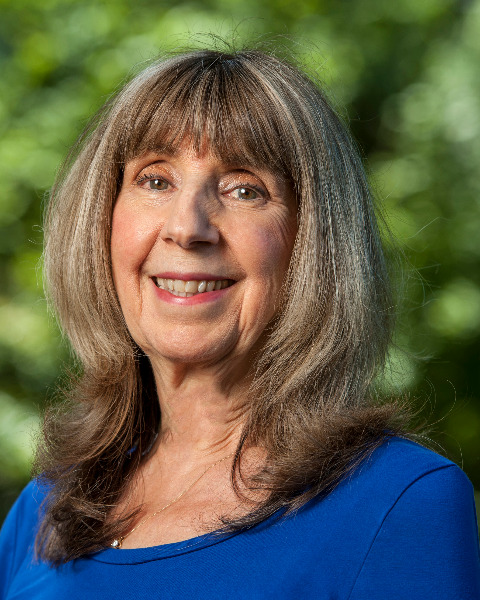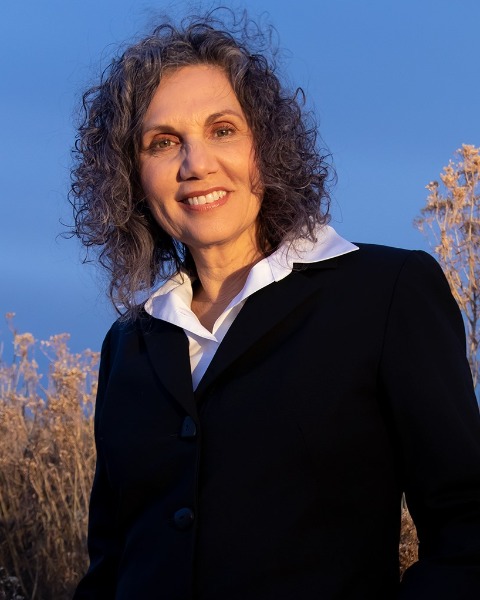Back
Community Outreach & Engagement
Pandemic Impact Assessment: Defining the Next Normal
Saturday, January 28, 2023
10:30 AM – 11:45 AM
Location: Morial Convention Center, Room 395-396
Level of Participation: High
Please note: this session included individual or small group work so there will be breaks in the presentation.
Our world has fundamentally changed in response to social, economic, and public health challenges. Although there are many challenges for libraries, there also are opportunities for each library to demonstrate responsiveness and agility in transitioning to a new model library. How have you and your library staff responded to social, economic, and public health challenges? How have you and your communities modified the ways you collaborate, provide different engagement opportunities, and share information? How will you assess these changes to determine whether or not they should continue as is, be modified, or be discontinued? Learn how other library leaders and staff have made changes during the pandemic that they believe will change the library model going forward. Share the changes you have made, plan to continue, and believe will develop into your new model library. Marie L. Radford will explore the impact of the pandemic on virtual reference services (VRS) and instruction, especially live chat for academic libraries. Library staff had to change rapidly to respond to conditions that necessitated a swift adaptation to enhanced online service delivery. Reference is an essential service for libraries and changes to instruction and operating status led to modifications in service delivery, even for institutions with existing VRS programs. Through analysis of interviews and two national surveys of librarians responsible for adapting their institutions’ response to physical service closures and reductions, this investigation aims to understand how this changing environment has transformed VRS, how academic library services transitioned to support expanded online instruction and research, and how users’ communication and information practices evolved. Lynn Silipigni Connaway will share the ideas 29 international library leaders from public, research, 4-year colleges, and community/technical colleges discussed as emerging library models in response to the changes caused by the pandemic. The individual interviews were centered on new and evolving practices and policies as well as collaborations with other libraries and community agencies as the leaders reflect on their long-term vision for libraries. These leaders articulated their visions for a new model library that will emerge as they look at opportunities for converting their short-term responses to the pandemic into positive, long-term change. Radford and Connaway will provide brief overviews of their research results, highlighting changes made in library services, collaboration, and engagement during the challenges endured in the last three years and a vision for future planning. The attendees will work in small groups to share the challenges they faced and the changes they have made during the past three years. The New Model Library Learner Guide will be available for the attendees to use to enhance their discussions https://www.oclc.org/research/publications/2021/oclcresearch-new-model-library.html. The content providers will work with the small groups to identify ways to assess these changes and to determine if they will be part of their new model library. Each participant will leave with a draft action plan for assessment. Several groups will be asked to share their vision for a new model library as we move forward through social, economic, and public health challenges.
Our world has fundamentally changed in response to social, economic, and public health challenges. Although there are many challenges for libraries, there also are opportunities for each library to demonstrate responsiveness and agility in transitioning to a new model library. How have you and your library staff responded to social, economic, and public health challenges? How have you and your communities modified the ways you collaborate, provide different engagement opportunities, and share information? How will you assess these changes to determine whether or not they should continue as is, be modified, or be discontinued? Learn how other library leaders and staff have made changes during the pandemic that they believe will change the library model going forward. Share the changes you have made, plan to continue, and believe will develop into your new model library. Marie L. Radford will explore the impact of the pandemic on virtual reference services (VRS) and instruction, especially live chat for academic libraries. Library staff had to change rapidly to respond to conditions that necessitated a swift adaptation to enhanced online service delivery. Reference is an essential service for libraries and changes to instruction and operating status led to modifications in service delivery, even for institutions with existing VRS programs. Through analysis of interviews and two national surveys of librarians responsible for adapting their institutions’ response to physical service closures and reductions, this investigation aims to understand how this changing environment has transformed VRS, how academic library services transitioned to support expanded online instruction and research, and how users’ communication and information practices evolved. Lynn Silipigni Connaway will share the ideas 29 international library leaders from public, research, 4-year colleges, and community/technical colleges discussed as emerging library models in response to the changes caused by the pandemic. The individual interviews were centered on new and evolving practices and policies as well as collaborations with other libraries and community agencies as the leaders reflect on their long-term vision for libraries. These leaders articulated their visions for a new model library that will emerge as they look at opportunities for converting their short-term responses to the pandemic into positive, long-term change. Radford and Connaway will provide brief overviews of their research results, highlighting changes made in library services, collaboration, and engagement during the challenges endured in the last three years and a vision for future planning. The attendees will work in small groups to share the challenges they faced and the changes they have made during the past three years. The New Model Library Learner Guide will be available for the attendees to use to enhance their discussions https://www.oclc.org/research/publications/2021/oclcresearch-new-model-library.html. The content providers will work with the small groups to identify ways to assess these changes and to determine if they will be part of their new model library. Each participant will leave with a draft action plan for assessment. Several groups will be asked to share their vision for a new model library as we move forward through social, economic, and public health challenges.
Learning Objectives:
- identify two important changes their institution has made in library services, collaboration, and engagement during the past 3 years.
- determine effective strategies to assess these changes, connecting assessment to future planning.
- apply research findings regarding challenges and changes that 29 international library leaders and 28 US academic library leaders have made during the pandemic.

Marie L. Radford (she/her/hers)
Professor and Chair
Rutgers University
Lynn S. Connaway
Executive Director, Research
OCLC Research
